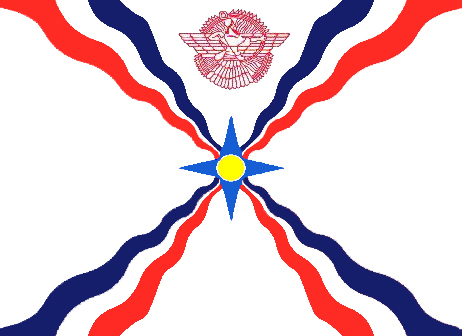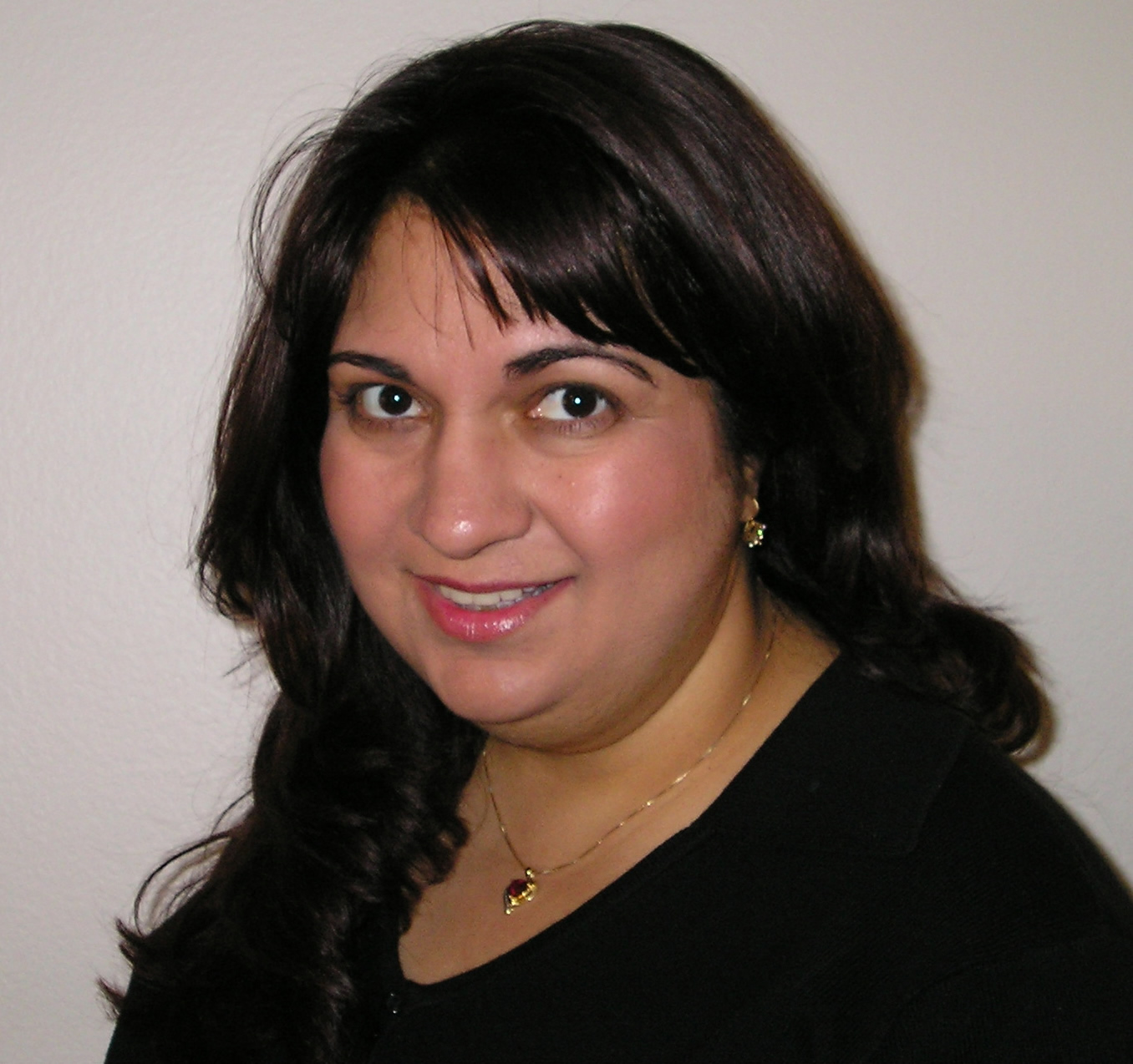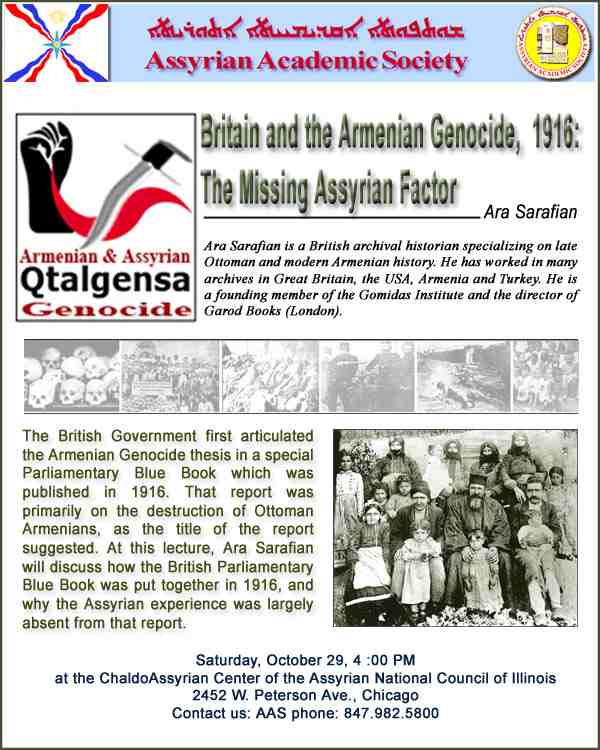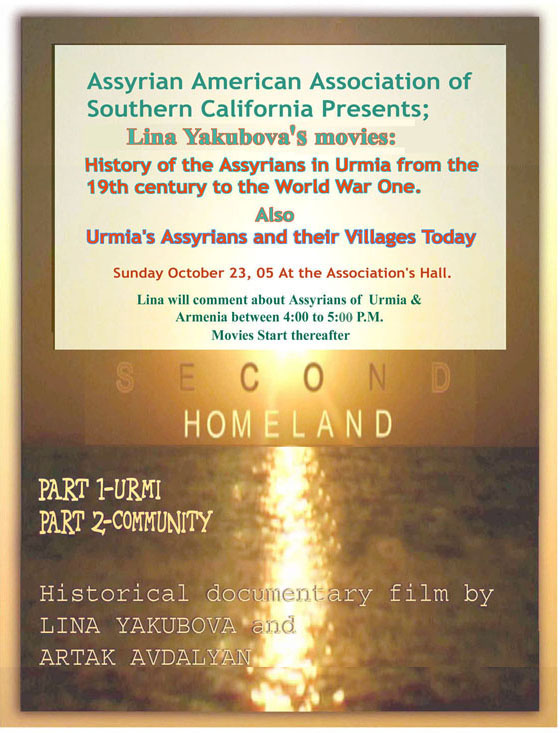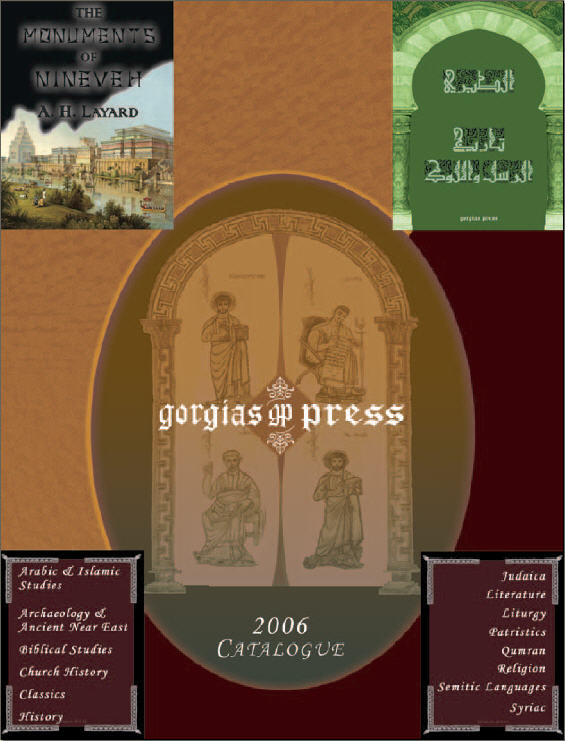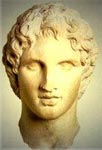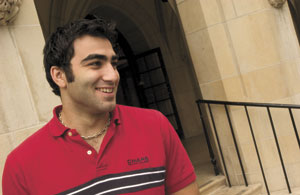United Christian Coalition Formed in Baghdad
(ZNDA: Baghdad) At a meeting held in Baghdad's Babil Chaldean Club on 18 October, a coalition of Christian political parties was formed which includes the following groups:
-
ARC TV
|
| Tuesdays |
6 pm to 7 pm (California Time) |
| Wednesdays |
2 pm to 3 pm (California Time) |
| Thursdays |
7 am to 8 am (California Time) |
NORTH AMERICA:
Satellite: Intelsat Americas 5
Frequency: 11867
MHz Polarization: Vertical
FEC Rate: 3/4
Symbol Rate: 22000 |
EUROPE & THE MIDDLE EAST:
Satellite: Telstar 12
Frequency: 11494
Symbol Rate: 17468
FEC: 3/4 Horizontal
Video PID: 0038
Audio PID: 0039
LCR: 0038 |
Armenian Democratic Gathering
- Assyrian Patriotic Party
- Bet Nahrain Democratic Party
- Bet Nahrain Patriotic Union
- Chaldean Democratic Forum
- Chaldean Democratic Union Party
- Chaldean National Congress
- Christian Democratic Brotherhood Party
- Christian Democratic Party
- General Assyrian Conference
- Suryan Independent Assembly Movement
The groups had once before met at the al-Mashriq Club in Baghdad on 11 October. The meeting included representatives from the Assyrian Democratic Movement or Zowaa also which is not represented in this coalition which plans to run on a single slate at the upcoming parliamentary elections on 15 December, 2005 in Iraq.
The draft of a working paper was proposed at the October 11th meeting. Four groups - the Assyrian Patriotic Party, Bet Nahrain Democratic Party, Assyrian Democratic Movement, and the General Assyrian Conference, opposed the first point noted in this working paper which calls for the formation of a"higher central authority" with powers and privileges to represent all Christians in all official communications. The other eight groups approved it.
The General Assyrian Conference issued a clarification rejecting any motion to represent the Christian people of Iraq as Christians only.
Point 2 of the working paper called for the formation of a coalition of political parties to run on a single ticket in the December 15th elections. The motion was agreed upon unanimously.
Vote Figures for Crucial Province Don't Add Up
Analysis by Gareth Porter
Washington D.C.
Courtesy of the Inter Press Service News Agency
19 October 2005
(ZNDA: Washington) The early vote totals from Nineveh province, which suggested an overwhelming majority in favour of Iraq's draft constitution that assured its passage by national referendum, now appear to have been highly misleading.
The final official figures for the province, obtained by IPS from a U.S. official in Mosul, actually have the constitution being rejected by a fairly wide margin, but less than the two-thirds majority required to defeat it outright.
LINDA BADALOF |
|
|
|
|
|

Fluent in Assyrian |
COMPLIMENTARY
1-Year Home Warranty Plan
Home Buyer's Pro Inspection
Fall-Time Cleaning Service
Call for details - Gifts not to exceed $1,000.00 - Provided at the close of escrow. |
25101 The Old Road
Santa Clarita, CA
Direct: 661.284.5097
Cell: 661.645.4290
Yahoo ID: LindawithREMAX
lbadalof@sbcglobal.net |
|
Both the initial figures and the new vote totals raise serious questions about the credibility of the reported results in Nineveh. A leading Sunni political figure has already charged that the Nineveh vote totals have been altered.
According to the widely cited preliminary figures announced by the spokesman for the Independent Electoral Commission of Iraq (IECI) in Nineveh, 326,000 people voted for the constitution and 90,000 against. Those figures were said to be based on results from more than 90 percent of the 300 polling stations in the province.
Relying on those "unofficial" figures, the media reported that the constitution appeared to have been passed -- on the assumption that the Sunnis had failed to muster the necessary two-thirds "no" vote in Nineveh. No further results have been released by the IECI since then, and the final tally from the national referendum is not expected until Friday at the earliest.
However, according to the U.S. military liaison with the IECI in Nineveh, Maj. Jeffrey Houston, the final totals for the province were 424,491 "no" votes and 353,348 "yes" votes. This means that the earlier figures actually represented only 54 percent of the official vote total -- not 90 percent, as the media had been led to believe. And the votes which had not been revealed earlier went against the constitution by a ratio more than 12 to 1.
These ballots could only have come from the Sunni sections of Mosul, a city of 1.7 million people. Although the votes from polling centres in those densely populated urban areas would take longer to count than those from more sparsely populated towns and cities outside Mosul, they should not have taken much longer than those for the Kurdish sections of Mosul.
Thus there seems to be no logistical reason for failing to announce the results for the 340,000 votes that went overwhelmingly against the constitution. Rather, the evidence suggests that it was a deliberate effort to mislead the media by Kurdish and Shiite political leaders who were intent on ensuring that the constitution would pass.
They knew that all eyes would be on Nineveh as the province where the referendum would be decided. By issuing figures that appeared to show that the vote in Nineveh was a runaway victory for the constitution, they not only shaped the main story line in the media that the constitution had already passed, but effectively discouraged any further media curiosity about the vote in that province.
The final figures revealed by the U.S. military liaison with the IECI suggest a voter turnout in Nineveh that strains credibility. On a day when Sunni turnout reached 88 percent in Salahuddin province and 90 percent in Fallujah, a total of only 778,000 votes -- about 60 percent of the eligible voters -- in Nineveh appears anomalous. Even if the turnout in the province had only been 70 percent, the total would have been 930,000.
The final vote totals suggest that the Sunnis, who clearly voted with near unanimity against the constitution, are a minority in the province. It is generally acknowledged that Sunnis constitute a hefty majority of the population of Nineveh, although Kurdish leaders have never conceded that fact.
A total of 350,000 votes for the constitution in the province is questionable based on the area's ethnic-religious composition. The final vote breakdown for the January election reveals that the Kurds and Shiites in Nineveh had mustered a combined total of only 130,000 votes for Kurdish and Shiite candidates, despite high rates of turnout for both groups.
To have amassed 350,000 votes for the constitution, they would have had to obtain overwhelming support from the non-Kurdish, non-Arab minorities in the province.
According to official census data, before the invasion of Iraq in 2003, Assyrian Christians and Sunni Arabs accounted 46 percent of the more than 350,000 people on the Nineveh plain. Most of the others are Shabaks and Yezidis. Kurds represented just 6 percent of the population.
But the Kurds have asserted political control over the towns and villages of the plains, with a heavy Kurdish paramilitary and Kurdish Democratic Party (KDP) presence. That Kurdish presence provoked widespread opposition and some public protests among non-Kurdish communities on the plains, especially Christians and Shabaks.
Assyrian Christians are particularly afraid the constitution's article 135, which divides the Christian community into Chaldeans and Assyrians, will be used by Kurds to expropriate their lands and villages in North Iraq.
Michael Youash, director of the Iraq Sustainable Democracy Project in Washington, has spoken with Assyrian Christian leaders in two district towns, Bakhdeda and BarTilla, on the Nineveh plain where Christians represent roughly half the combined total population of more than 100,000 people.
He says Assyrian Christian political organisations mounted big demonstrations against the constitution in both towns, and that their local leaders are sure that very high percentages in both towns voted against the constitution.
In response to an e-mail query, Maj. Houston, the U.S. military liaison with the IECI, said, "It was my understanding that the Christian communities would be opposed to the constitution," but he dismissed the suspicions of vote fraud in the province.
Saleh al-Mutlek, one of the Sunni negotiators on the constitution last summer and now a leading opponent of the constitution, told reporters, "There is a scheme to alter the results" of the vote. He alleged that members of the Iraqi National Guard had seized ballot boxes from a polling station in Mosul and transferred them to a governorate office controlled by Kurds.
A former U.S. military liaison with the Nineveh province IECI has confirmed a similar incident of seizure of ballot boxes from a polling station during the January elections.
According to Maj. Anthony Cruz, Kurdish militiamen tried to bribe local electoral commission staff to accept ballots that had obviously been tampered with. Cruz also confirmed a much larger ballot-stuffing scheme by Kurdish officials in the province, as reported by IPS in September.
On Monday, the Electoral Commission announced that it would conduct an audit to examine the high "yes" vote, but it is not clear that it will include the results in Nineveh.
 Gareth Porter is an historian and national security policy analyst. His latest book, "Perils of Dominance: Imbalance of Power and the Road to War in Vietnam", was published in June. Gareth Porter is an historian and national security policy analyst. His latest book, "Perils of Dominance: Imbalance of Power and the Road to War in Vietnam", was published in June.
Iraqi Bishops May Turn to Pope for Help on Constitution
Courtesy of Zenit News Agency
18 October 2005
(ZNDA: Baghdad) In the wake of Saturday's referendum on Iraq's draft constitution, Church leaders remain fearful that the country is one step closer to becoming an Islamic state intolerant of non-Muslims.
Early results indicate that a majority of voters supported the draft constitution.
Last month, Chaldean Patriarch Emmanuel III Delly of Baghdad met the president and prime minister of Iraq to spell out the bishops' opposition to key sections of the draft constitution, which they say "opens the door widely" to the possibility of new laws that are unjust toward non-Muslims.
In an interview Monday with the Catholic charity Aid to the Church in Need, Chaldean Auxiliary Bishop Andraos Abouna said Iraq's leaders had ignored their concerns and that as a result the bishops were likely to call on Benedict XVI to intervene on their behalf.
"The bishops will probably have a meeting with the Pope and will ask him to call for democracy in Iraq," said Bishop Abouna.
He said a papal intervention would step up the pressure after the Holy Father met Iraqi Foreign Minister Hoshyar Zebari in August and requested that the draft constitution respect religious rights.
"We are looking for freedom -- the government must listen," said Bishop Abouna, 62. "Otherwise the country will be like a dictatorship."
Still hopeful
The prelate said the views reflected the widespread concerns of the faithful, many of whom, he said, were too afraid to take part in the referendum.
He added: "I am still hopeful that there will be a change to the constitution. What we have at present is a basic document, which has not been finalized."
At issue is a fundamental contradiction which -- according to the bishop -- lies at the heart of the constitution: Article 2.1 (b) and 2.2 defend freedom and religious rights, but Article 2.1 (a) states: "No law can be passed that contradicts the undisputed laws of Islam."
Chaldean Patriarch Says Nations Should Not Turn Away Fleeing Iraqis
Courtesy of the Catholic News Service
17 October 2005
By Carol Glatz
(ZNDA: Rome) Iraqis fleeing violence and terrorism in their country should not be turned away by other nations and sent back to face an unfolding tragedy, said the leader of Iraq's Chaldean Catholics.
"I pray that Western governments, including the United States, take pity on these Iraqis and at least offer them a stay permit for those who are already there and, if possible, a visa" for those wishing to arrive legally, said Chaldean Patriarch Emmanuel-Karim Delly of Baghdad, Iraq.
He told Catholic News Service that it was extremely difficult for Iraqis wishing to leave the country to obtain visas. Many travel to Syria or Jordan with the hope of eventually joining relatives in the United States, Australia or Europe. But "the way out is blocked," he said, "with thousands of lies."
FINAL DAYS
Buy Your Tickets Today |
Click Graphic Below for More Information
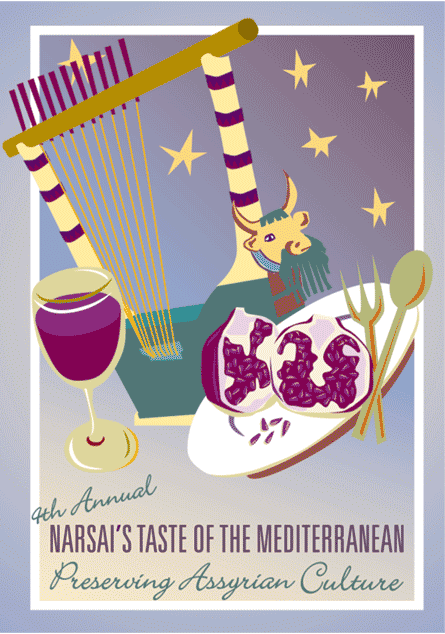 |
As a corporate sponsor of this event, Zinda Magazine is offering special student tickets at $100 (over 65% discount) to full-time Assyrian students with valid proof of enrollment at a high school or college. To obtain your tickets contact Zinda Magazine at narsai2005@zindamagazine.com. Bon apetite ! |
|
Patriarch Delly, who was in Rome for the Oct 2-23 Synod of Bishops on the Eucharist, said officials at foreign embassies in charge of issuing visas tell applicants "that the war is over, that Saddam (Hussein), the dictator, is finished, now Iraq has a democracy."
"What democracy" he asked, "when I can't leave my home and I'm afraid to leave my house," because of the daily violence and bloodshed?
The patriarch said he had no information about the final results of the Oct. 15 referendum to approve an Iraqi constitution. Although initial results indicated the constitution was approved, some areas, such as the city of Fallujah, recorded an overwhelming "no" vote.
U.N. Secretary-General Kofi Annan said Oct. 17 the constitutional referendum had not unified the country, and violence could be expected to continue.
Some Christian leaders estimate that that just in the period from August to October 2004 between 10,000 and 40,000 Christians left Iraq.
Patriarch Delly said he would love for the Iraqi people to be able to stay and live in their home country, "but when your children get kidnapped or killed, when there's no security, no peace, well, of course (people) will want to spend the 20 or 30 years they have left to live on this earth abroad."
"We pray that governments let those who are living in their countries -- to not send them back to Iraq and to have pity on them," he said.
The patriarch said he was enormously grateful for the solidarity shown by the Chaldean communities abroad who generously give aid to those in Iraq.
"If it weren't for our Chaldean immigrants in Detroit, in Chicago, California, and elsewhere, the situation for our faithful would be much worse than what it is now," he said.
People in Iraq are afraid to accept employment being offered because they are afraid they will look like they are "collaborating with the Americans, and they would be killed," he said.
"Relatives, parents -- they are the ones sending help through the church, through friends, to help these people live," he said.
Patriarch Delly also told CNS that he was concerned about what he suspected was a moneymaking venture undertaken by some evangelical groups.
He said there are new evangelical groups arriving from "Jordan, Syria, Lebanon and Egypt, supported with American, English or German funding," and they begin operations in Baghdad.
He underlined that the Chaldean Catholic Church has always had good relations with evangelical groups that have established churches in Iraq. But he said these "new evangelicals" pouring in are engaged more in raising funds from foreign, rich donors than spreading the Gospel.
The groups first "give (Christians and Muslims) money, give them clothes, they promise them to find a way to get them a visa," he said.
Then the groups take pictures of the large numbers of people who flock to the centers and with the pictures the groups "write to their benefactors in Germany, France, America, saying 'look how many people'" they have helped and converted, he said.
Many of the Iraqis who go to these churches are poor and desperate for the money and only stay "'converted' for a year or two for as long as they" need the aid, he said.
Just in one small neighborhood in Baghdad there are at least 12 new evangelical centers "because anyone can open up a church now since it makes them money," he said.
"We ask (these groups), 'Are you missionaries for love of Christ or for love of money?'" he said. But he added that he hoped God would someday "show the light" to these new evangelical leaders "who are our brothers, and we want to collaborate in making Christ known to everyone."
"But here (in Iraq), Christ is already known. We have been Christian for 2,000 years; if they want to convert people (to Christ) they should go elsewhere" where Christ is not yet known, he said.
|

